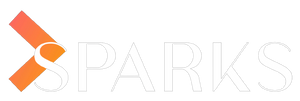
Principles of the Internet of Things and Industry 4
حدد الخيارات
About this course
The Internet of Things (IoT) is reshaping how we live, work, and interact with our environments. This course introduces the core technologies behind IoT systems, combining theory with hands-on practice using virtual microcontrollers like ESP32 and Arduino. By the end of this course, you'll have built your own connected prototypes and explored how IoT enables smart cities, smart homes, and industrial systems.
Learning Objectives
- Understand IoT architecture, microcontroller basics, and connectivity
- Explore how sensors and actuators interact with physical environments
- Build simulated IoT systems using cloud tools
- Learn real-time data transmission and dashboard integration
- Identify IoT use cases across smart cities, homes, and industry
What you'll learn
Basic IoT Communication
- Understand MQTT and HTTP protocols
- Simulate data logging and remote control
- Learn real-world design constraints (power, security)
IoT Overview & Components
- What is IoT? Devices, networks, and the cloud
- Core elements: sensors, actuators, connectivity, microcontrollers
- Use cases: Smart homes, agriculture, health tech
Working with Simulated Hardware
- Introduction to ESP32/Arduino architecture
- Online IoT simulators (e.g., Wokwi, Tinkercad)
- Blinking LEDs, basic code deployment
Sensor Data & Dashboards
- Simulate temperature, motion, and humidity sensors
- Send sensor data to cloud (ThingSpeak/Firebase)
- Build a live dashboard to visualize readings
